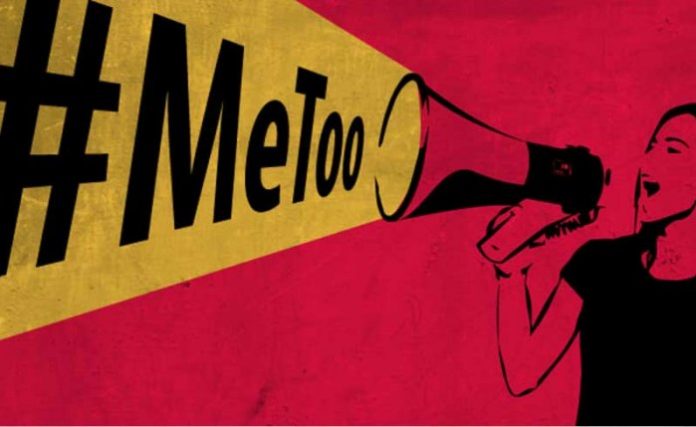The outcomes of India’s #MeToo movement after more than two years of its passage appear to be the harsh reality of the power dynamics of the system rather than an issue of in-depth patriarchal mindsets existing in our society.
Dr Ahmed Raza, TwoCircles.net
The court’s verdict in favour of Priya Ramani who was acquitted of defamation in the #MeToo case must be acknowledged as having a strong salutatory effect rather than a victory for India’s #MeToo movement, as the victim had to stand up in court as an accused. The outcomes of India’s #MeToo movement after more than two years of its passage appear to be the harsh reality of the power dynamics of the system rather than an issue of in-depth patriarchal mindsets existing in our society. Unfortunately, the movement could only raise the TRP for the media industries and not create any discourses on issues of women safety and security at the workplace. The court verdict will empower more women to speak up as it protects women’s right to put forward their grievances ‘even after decades’ and the woman cannot be punished for raising voice against the sexual abuse on the pretext of criminal complaint of defamation. Hence, court verdicts in favour of Priya Rumani for raising her grievances will act as a catalyst for the #MeToo movement as the majority of the high profile personalities who have been accused in the #MeToo case are of high reputation. Now their reputation cannot be protected at the cost of the right of life and dignity of woman. Following the court verdict, women feel strengthened and confident to express their grievances about what they experienced during their professional relationships as a senior-junior colleague, employer-employee, owners-clients deals etc.
Exploitations or sexual abuses at work-places are caused by power dynamics existing in our society due to the positions, designation, money and affiliations which has nothing to do with patriarchal attitudes. The entire #MeToo movement has been wrongly perceived as an issue of gender-discrimination and patriarchal mindset and considered as an extension of feminist activisms in India. Although, the #MeToo movement is inspired by a global campaign against sexual harassment and assault at workplaces in which power dynamics becomes the major cause for all such kind of sexual abuses, molestation and other sexual favour. On one hand, the list of the allegations reported on social media are associated with high profiles and position coming only from an elite, upper class, and empowered, on other hand, financially independent women who are only coming forward to express their grievances. Though, lower class, rural, uneducated and disempowered women feel insecure and terrified while narrating their stories of sexual misconduct as they do not expect their fair trial and investigation due to the existence of power dynamics of the society.
The #MeToo movement has been bloated by media as issues of gender discrimination, patriarchal mindset and sexual misconduct and harassment at workplace, but media has not emphasized the issues as harsh realities of power dynamics. The bulk of the allegations are not being taken seriously and a fair trial could not be expedited as only a few numbers of cases are reported due to the power dynamics of the perpetrators. Power dynamics allows a powerful person to affect the people, environments, and events around them as power affects all aspects of social life, from the workplace to the home. For instances, the high profile Priyadarshini Mattoo murder case of 1996 and the Jessica Lal murder case of 1999 appeared to be a harsh reality of the power dynamics of the culprits as justices were delivered only when public outrages and anger started hitting the news-headlines in the cases. Hence, the positives outcomes of the #MeToo movement depend on how we are determined to eradicate the power dynamics system from our political system.
#MeToo movement in India has had an impact in the remote, rural areas and the informal sector where sexual abuses and molestation cases are rampant as the dark experiences of millions of women belonging to the informal sector, rural areas etc remain invisible. As per the Economic Times report of 2018 which mentioned that about 80% of sexual harassment cases at Indian workplaces are not reported. On one hand, women always experience humiliation, mistrust and lack of assistance at police stations if they narrate their stories of harassment. In a few cases, even women happen to be the victim of assault and intimidation by the accused. They are also targeted while finding work and were tagged as ‘trouble-makers’, sometimes boycotted for speaking out.
Conclusion
Despite India enacting a law namely “the Sexual Harassment of Women at Workplace (Prevention, Prohibition and Redressal) Act” in the year 2013, with a purpose of protecting workers in both formal and informal sectors, including domestic workers, it still always lacks in empirical validity. As per the Human Rights Watch report published in 2020, the law could not be implemented effectively. Although, the said act is required to amend as lacuna associated with the law always amounts to be an issue of women safety at small organizations, the nomination of internal complaints committee by employer etc. For instance, every organization with more than 10 employees is required to form an internal complaints committee for sexual harassment cases. But the committee is always nominated by the employer. The outcomes of the #MeToo movement in India would depend on professional ethics, values, and neutrality of the investigating agencies and judiciaries which are required to clean up their functioning and curb the power of fame and money.
Dr Ahmad Raza is an Assistant Professor, MANUU & Project Director (MRP, ICSSR) Ministry of Education Government of India.


